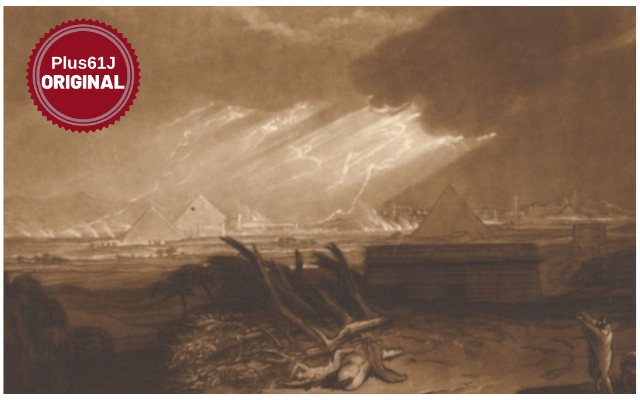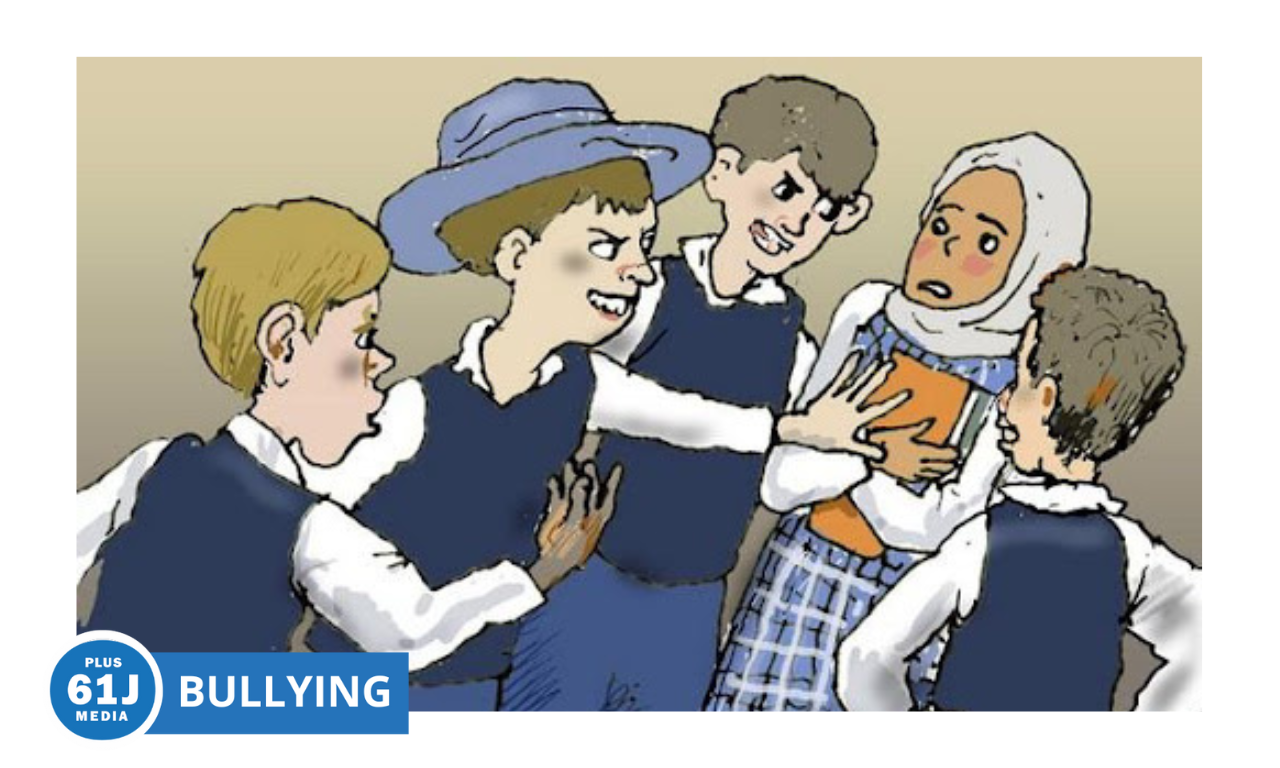Published: 7 April 2020
Last updated: 4 March 2024
AMONG LAY PEOPLE, Jews ought to be the world’s top experts on the topic of plagues. After all, what other people has spent centuries with an annual moment of reflection on a series of catastrophic plagues such as those believed to have been visited upon the Egyptians millennia ago. The current moment, as a devastating 21st century plague sweeps across the planet, provides an opportunity to examine the lessons Passover holds for such times, just what can be gleaned from the Torah and Haggadah.
I perused the chapters of Exodus covering the plagues in search of an ethical teaching. What I found instead is a story of the assertion and imposition of power. The tale of the Ten Plagues is one of god demonstrating his overwhelming power, particularly as compared to the gods of the Egyptians. It is as if the god of Exodus wanted the Egyptians and the world to know that, like Samuel Jackson’s character in the film Pulp Fiction, his wallet is “the one that says bad mother-f-cker.”
But the ethical questions that modern Jews might ask are absent. How did Moses or the Hebrews feel about the devastation brought to the Egyptians on their behalf? What was it like for them to huddle in their homes as the lamentations of thousands echoed around them? No insight is provided in the Haggadahs I have seen, despite the ritualistic splash of droplets of wine onto participant’s plates, one for each plague.
As Rabbi Jill Jacobs points out on the website, My Jewish Learning, “the biblical story does not explain the significance of the specific set of plagues that God imposes on the Egyptians.”
[gallery columns="1" size="large" ids="34251"]
As is the case with most religious traditions, those so inclined can wring meaning from these tales and rituals. The devout can be like the Brave Little Taylor of the Brothers Grimm, vaingloriously squeezing milk from a stone. This effort is at the heart of Rabbinic Judaism. Jacobs cites a number of Midrashim that point to the plagues’ role in convincing “Pharaoh and his people of God’s power and build[ing] faith in God among the people of Israel.”
Reviewing a series of contemporary efforts to recontextualise the plagues story for a modern audience, Jacobs concludes, “contemporary readings of the Exodus therefore struggle to reinterpret the plagues to reflect our current consciousness and/or to expand the list of plagues in order to draw attention to all of the parts of the world that remain in need of liberation.”
In search of further insight, I turned to my own Jewish upbringing for perspective. I was in my thirties before I even knew there was a ritual surrounding the Ten Plagues. That was the first time I attended a Seder other than those of my own family. Over a number of Seders since, I have experienced everything from playful exuberance to a sombre sense of retribution as the wine drops fell. But in my own home, whether as a child or as an adult, they were unknown.
I like to believe this was an ethically motivated decision of my grandfather’s as he led 70-odd members of the extended family through the annual Seder, that he wanted the focus to turn toward freedom, justice, and social responsibility. For our family Haggadah, he had chosen a version published in 1941, a time when one can readily imagine the story of the Exodus told in a manner that emphasised the suffering of the Jews, the many tyrants faced, and calls to god for salvation.
How did Moses or the Hebrews feel about the devastation brought to the Egyptians on their behalf? What was it like for them to huddle in their homes as the lamentations of thousands echoed around them? No insight is provided in the Haggadahs I have seen.
Instead, The New Haggadah, whose lead author was Mordecai Kaplan, founder of Reconstructionist Judaism, sought to transpose the story “into the key of modern thought, modern experiences, and modern idiom.”
This Haggadah, though telling a Jewish story, aims to speaks for all of humanity. At the outset, Kaplan declares that “though the sacrifice be great and the hardships many, we shall not rest until the slaves that enchain all be broken” [emphasis added]. In a beautiful passage, Kaplan describes the enslavements that “warp the spirit and blight the mind, that destroy the soul.”
The New Haggadah enumerates many of these enslavements: those to our own emotions, habits, and bitterness; slavery to poverty and inequality; slavery to intolerance and prejudice. But, in his many revisions, Kaplan could not go so far as to omit the story of the plagues entirely. That step was taken by my grandfather in crafting a family tradition.
The New Haggadah was published at the time of the events fictionalised in the recent HBO adaptation of Philip Roth’s The Plot Against America. Like Herman Levin, Roth’s protagonist, my grandfather was a proud American, an observant Jew who aspired to the strong and steady virtues of the self-made men who heroically populate the novels of Horatio Alger. Roth’s Levin shouts at the fascist Charles Lindberg through his radio, “We’re Americans, you Nazi son of a bitch!”
Did my grandfather’s parents sail past the Statue of Liberty, inspired by the much touted but ever-contested universalist ethic of the nation whose citizens they were to become? Did they think of themselves as part of Emma Lazarus’ “huddled masses, yearning to breathe free”?
I have no way to know. But, contemplating the ethical message of Pesach, it is easy to imagine my grandfather and Mordecai Kaplan sharing a common sensibility that, as Marx and Engels put it, “the free development of each is the condition for the free development of all.”
Much can be gleaned from the Ten Plagues in the act of rejecting them. In doing so, we turn away from an ethic of retribution and power in favour of one of compassion, solidarity, and commitment to the wellbeing and freedom of all.
Much can be gleaned from the Ten Plagues in the act of rejecting them. In doing so, we turn away from an ethic of retribution and power in favour of one of compassion, solidarity, and commitment to the wellbeing and freedom of all.
In the context of contemporary American politics, it is the struggle for control of the Democratic Party between the “donor class”, those with the Benjamins, as it were, and grassroots people power as represented this election by Bernie Sanders and Elizabeth Warren.
In the Senate debates on the federal response to Covid-19, Sanders mocked the Republicans – “oh my god, the universe is collapsing” – over their opposition to a modest increase in unemployment compensation. Sanders turned his campaign apparatus to raising millions for Covid-19 relief. His rival, the “centrist” Joe Biden, was largely missing in action. Trump, of course, has delayed, cast blame, praised himself, and obfuscated.
It is here, in contemplating these divergent responses, that we can squeeze a bit of milk out of that petrified relic that is the book of Exodus. There, in a brief passage in chapter 12:4, we find an ethical position which supports that of Sanders. On the eve of the tenth plague, the Hebrews are instructed in cooperation in the sharing of the Paschal lamb.
The lesson I squeeze from the Ten Plagues for times of pandemic is now clear: stay safe at home; and cooperate and share with your neighbours. Hoarding toilet paper must surely be a sin, especially at the time of Pesach. Stay safe. Share what you have. Look after one another. And not just in times of plague.



